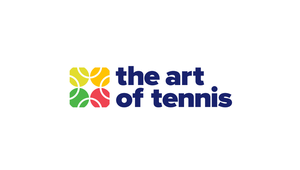The 4 Types of Coaches you Employ

One of the hardest parts about owning and running a tennis coaching business is finding other coaches to help support and grow your program.
A program needs to grow to a certain size to be fully effective. You can still teach tennis with low numbers but it’s difficult to create the right type of training environment as well as a genuine player pathway without growing your program to a certain level. This requires other coaches.
No matter which coach joins you it’s important you consider the following factors:
- Do you have enough hours for them? What minimum can you offer ?
- Are they a good fit with your coaching values and culture?
- Will they compliment your program?
- Can you imagine them working for you for many years?
So what are your options?
The Apprentice Coach
The apprentice can be a great option if you are prepared and willing to invest a lot of time guiding them, training them and investing in them. You must be patient as they will make mistakes and may get overwhelmed with the responsibility. But many Year 12s and uni students can grow into passionate, high quality tennis coaches within 2 to 3 years.
Dangers
- Thinking the students need to like them and losing control of the lesson.
- Lack of responsibility.
- Uni schedules and exams.
Positives
- Enthusiastic and fun.
- Role model to younger kids.
- Rapid growth.
The Twenty Something Lifestyle Coach
Some finish university and still don’t feel comfortable going into the field they studied in and want a different job for a ‘couple of years’. Some might have prioritized travelling since school or been drifting around from job to job. Many have been spending their time at US College Tennis, German Club Tennis as well as perhaps the lower tiers of the professional tennis tour. Sometimes this can leave a tennis void in their life and in some cases coaching can be the way to keep living that passion.
Dangers
- Travellers/drifters – Travelling more. Chasing further adventure. Constantly seeking grass is greener opportunities.
- Players – Inflated self worth that is far above the market realities of a local tennis professional. Not being prepared to teach those who are not ‘performance players’.
Positives
- Casual availability can be very helpful for busy periods.
- At an age and stage where they need less supervision and oversight.
The Career Coach
Many times the career coach has started as either the teenage apprentice or the twenty something lifestyle coach and learnt that they really like working in tennis and want to commit to a fulltime job. Many former players who love the game get to a point where they are prepared to commit fully to the role of tennis coach. This would also include a commitment to ongoing coach education.
Dangers
- An ignorance to the reality of full time coaching. Long days with early mornings, late nights and some weekend work is not for everyone and many just want to work a ‘normal job’ with ‘normal hours’.
- An increase in their expectation they want out of their job. Perhaps premature pay rises or unrealistic coaching ambitions can be a problem.
Positives
- A team member who is loyal to your program and club. Enjoying the security of fulltime work they give even more back with quality lessons, customer service and a commitment to constantly improve.
- New initiatives or opportunities to delegate the management of particular areas of the program or business.
The Veteran
The coach who has worked fulltime in the industry for 15 years or more. They either have worked at state or national bodies, run their own coaching business or worked at top tier clubs and academies. They are the tier 1 coaches who need to be well looked after both in terms of the types of lessons they take and the financial incentives you are prepared to offer. If they fit your program’s culture then the value you gain from this type of coach goes well beyond the per lesson profit margin.
Dangers
- They may get too involved with other areas of the program or club . This may cause problems with you as the business owner/director as well as other coaches, clients and club.
- You may simply not have the right type of program for this coach and will be stressing about keeping them happy.
Positives
- They can really be an asset who help attract players to your program. This can work as a form of marketing as your business can leverage off the coach’s experience and reputation and you can both be happy with the outcome.
- They can also be used to help offer mentorship to your other less experienced coaches as well as to bounce ideas off in regards to programs, players and coaching methodologies.
At Scarborough Tennis Academy we have actually had all of these types of coaches with success in categories as well as a few lessons learnt along the way. But as a tennis director or club coach you need to be realistic about what type of coach you are taking on and whether your expectations of them align with what they actually want. Where it’s important to grow your program with other coaches, if you have the wrong coach this can damage your reputation. So choose carefully, mentor them and inspire them to keep learning about coaching and becoming better at their craft.
Cheers
Rick Willsmore
Director of Tennis















